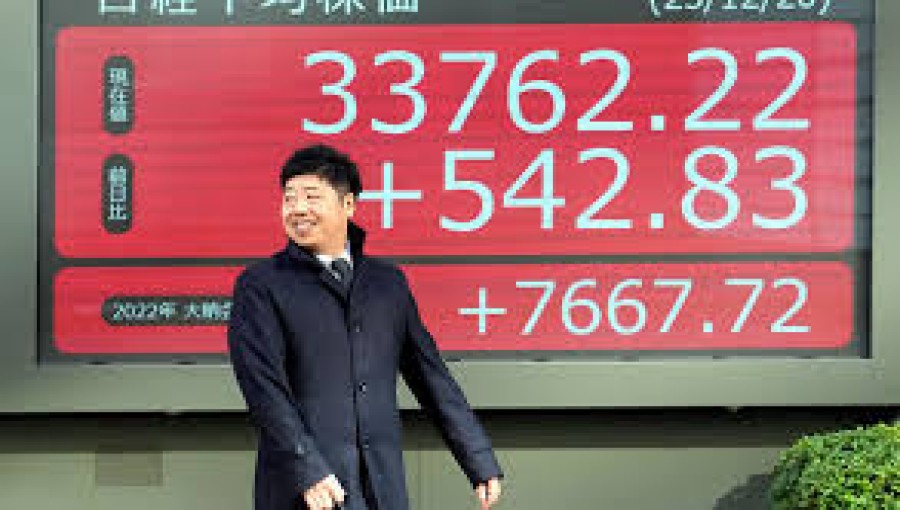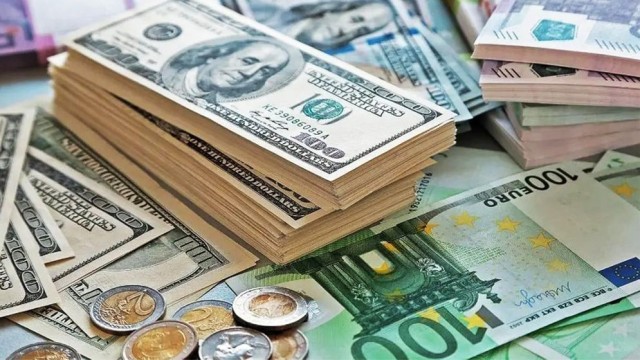Oct 01, V7N - Asian stocks retreated from their recent two-and-a-half-year highs on Tuesday, influenced by comments from Federal Reserve Chair Jerome Powell that dampened expectations for significant interest rate cuts.
This led to a strengthening of the U.S. dollar, while ongoing tensions in the Middle East continued to affect market sentiment. Oil prices remained stable, and gold traded just below its record high from the previous week as investors awaited U.S. labor data for more insight into the pace of potential U.S. rate cuts.
The MSCI's broadest index of Asia-Pacific shares outside Japan fell by 0.32% to 618.87, down from the high of 627.66 reached on Monday, though it has risen 17% this year. Japan's Nikkei index rose nearly 2% following a softer yen, recovering from a 4.8% drop on Monday after Shigeru Ishiba, perceived as a monetary policy hawk, won a contest to become the country's prime minister.
European stocks were poised for a higher opening, with futures for the Eurostoxx 50, German DAX, and FTSE all showing slight increases.
The focus during European trading hours will be on euro zone inflation data, which could influence the European Central Bank's decision on interest rates. ECB President Christine Lagarde expressed confidence that inflation would fall to the 2% target, hinting at a possible rate cut.
With mainland China's financial markets closed for the rest of the week, the recent rally in Asian markets paused. Hong Kong's Hang Seng was also closed on Tuesday. Economic stimulus measures have led to a surge in Chinese stocks, with the blue-chip CSI300 index rising 25% since the beginning of last week as global investors show renewed interest in China.
Matt Simpson, a senior market analyst at City Index, noted that trading might be volatile until U.S. data is released, especially with Chinese markets shut. Investors are also monitoring geopolitical tensions, particularly after reports of Israel's ground invasion of Lebanon.
Investor attention is focused on the pace of rate cuts from the Fed, following a 50 basis-point cut last month. Powell indicated that the Fed would likely continue with quarter-percentage-point cuts, supported by data showing economic growth and consumer spending. This led traders to adjust their expectations, with a 38% probability of a 50 bp cut next month, down from 53% on Friday, according to the CME FedWatch tool. Traders anticipate 70 bps of easing this year.
The shifting expectations around rate cuts bolstered the dollar, with the dollar index slightly higher at 100.77. The euro remained steady at $1.1142, while the yen fell nearly 0.5% to 144.34 per dollar. Economist Kristina Clifton from the Commonwealth Bank of Australia noted that the dollar could remain strong if upcoming data shows the U.S. labor market is stable.
In commodities, oil prices were stable, with Brent crude futures at $71.78 per barrel and U.S. West Texas Intermediate crude futures at $68.22 per barrel. Concerns about Middle East tensions potentially disrupting exports were balanced by the prospect of additional supply. Gold traded at $2,643.21 per ounce, close to the record high reached last week, as investors awaited further U.S. economic data.
END/BUS/RH/






























Comment: